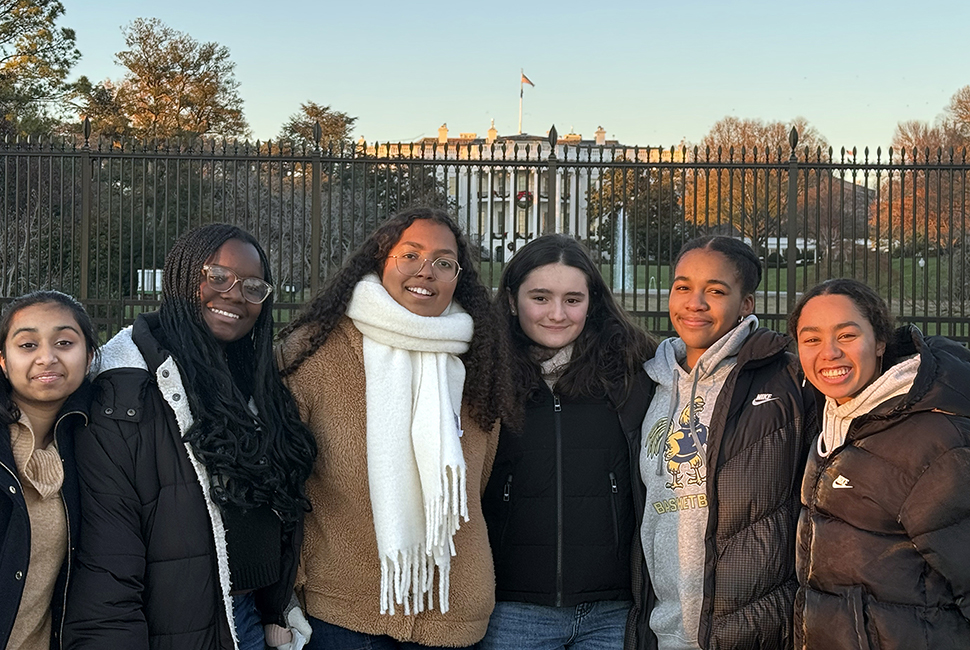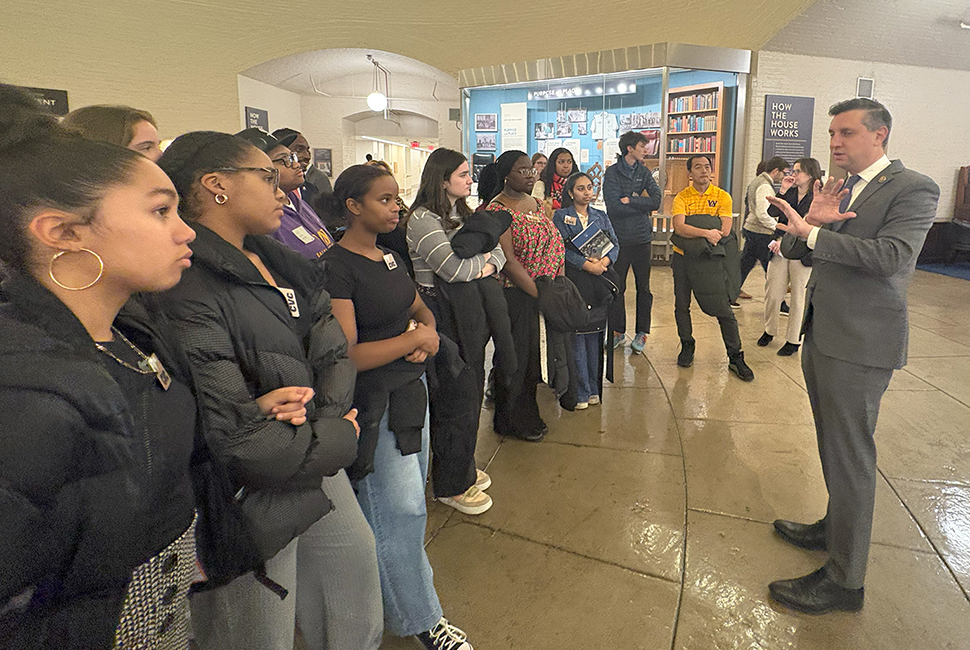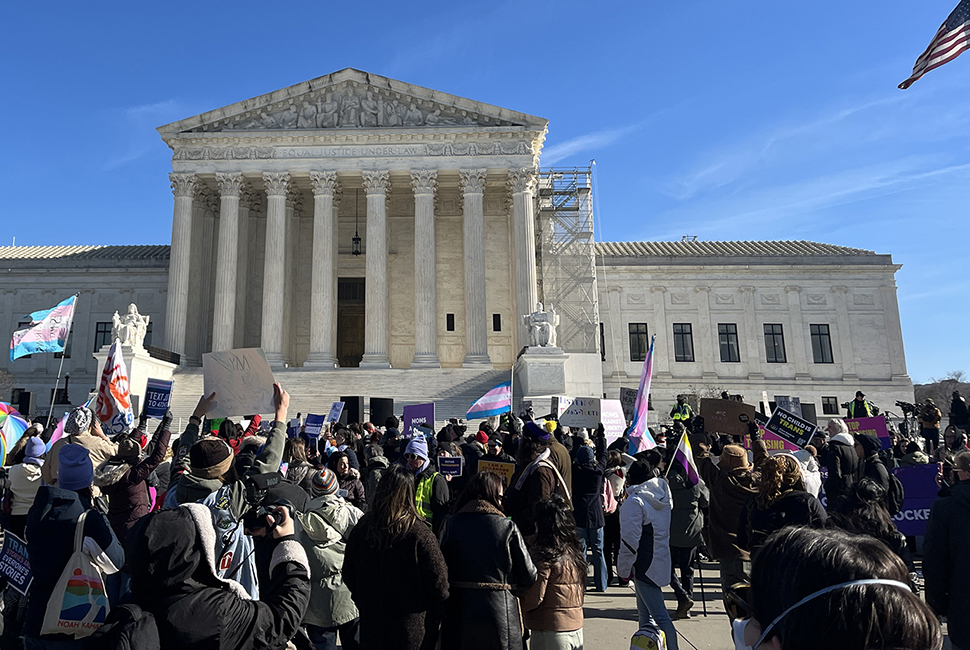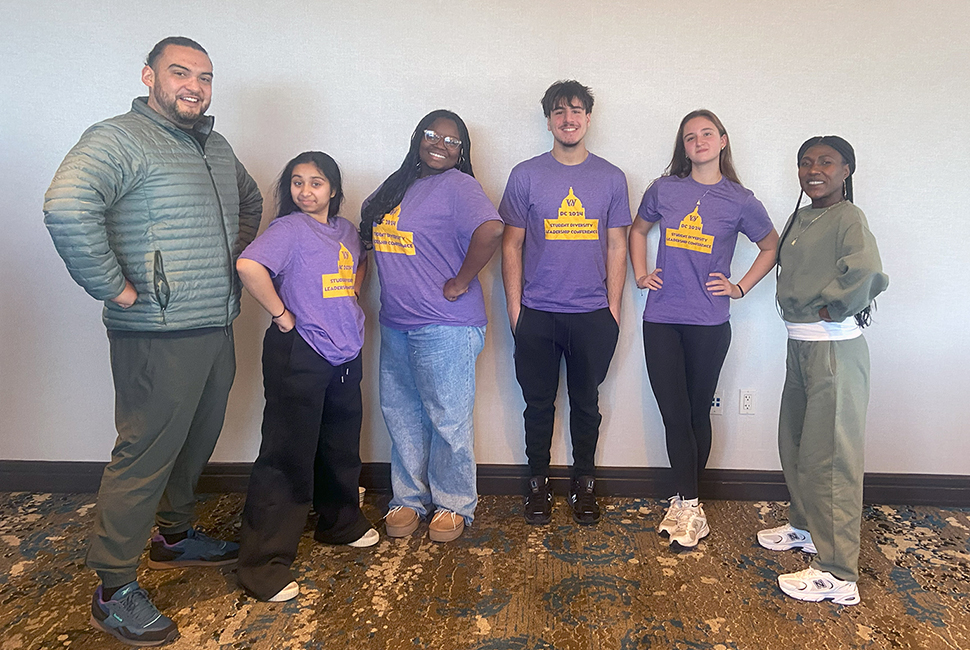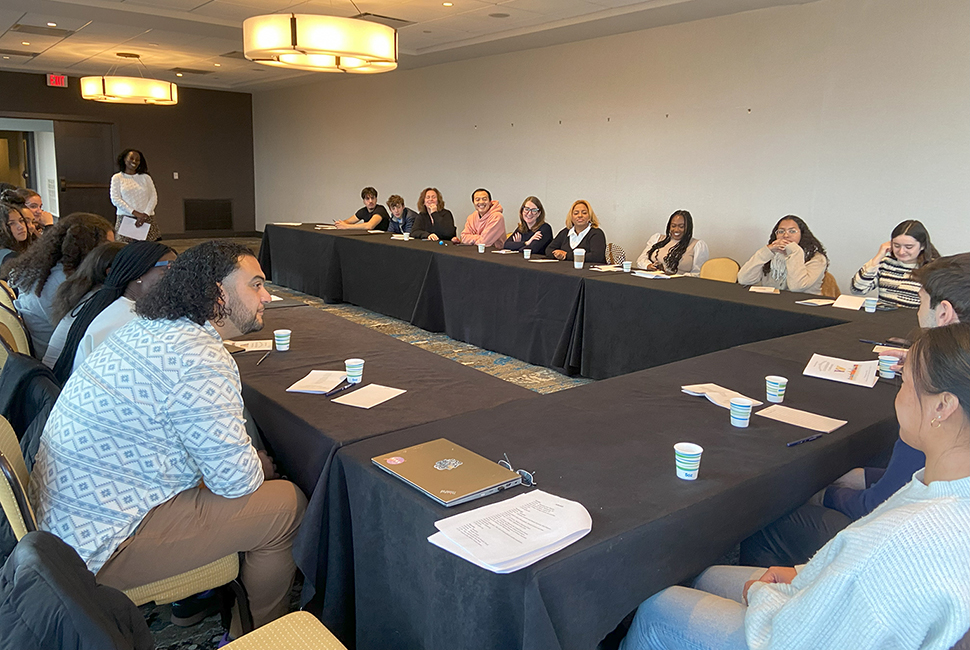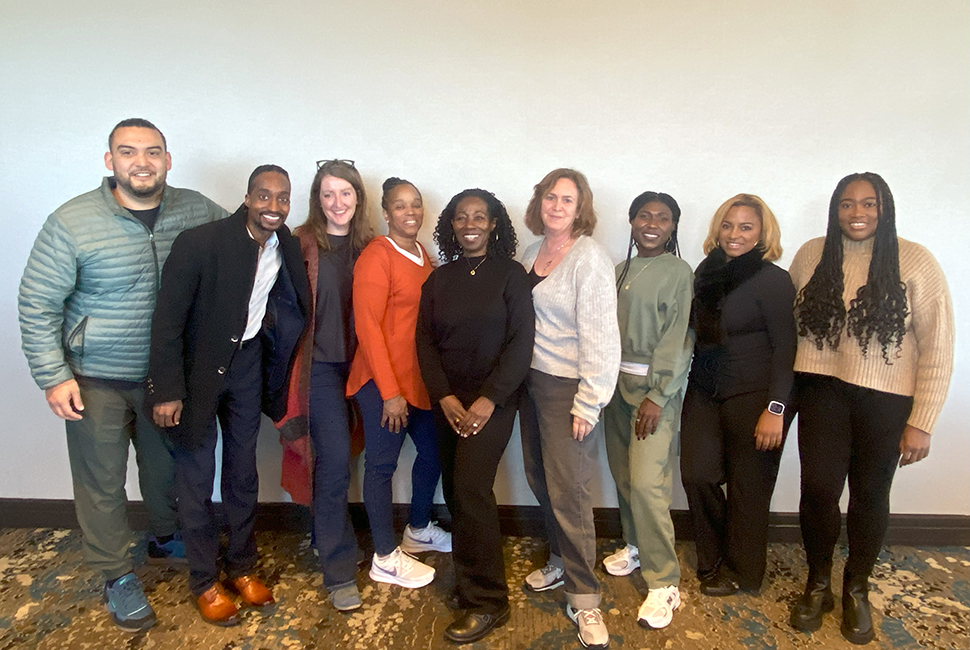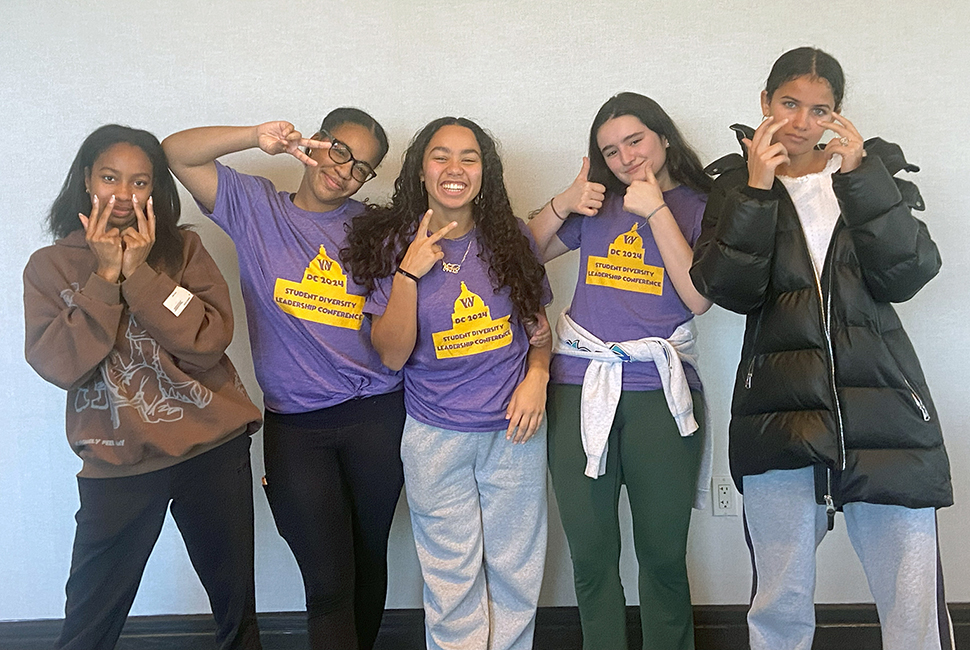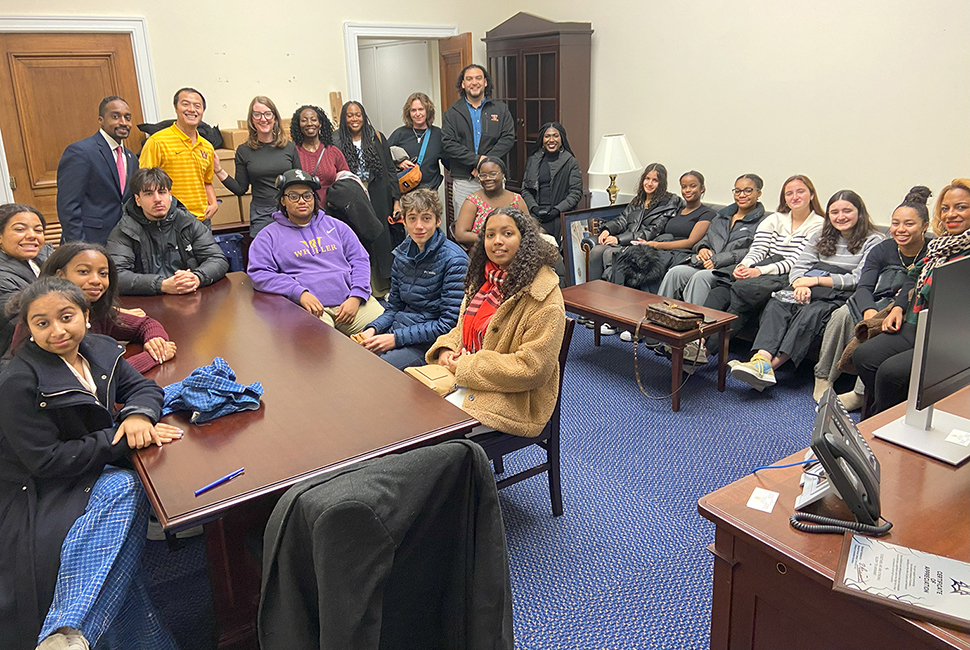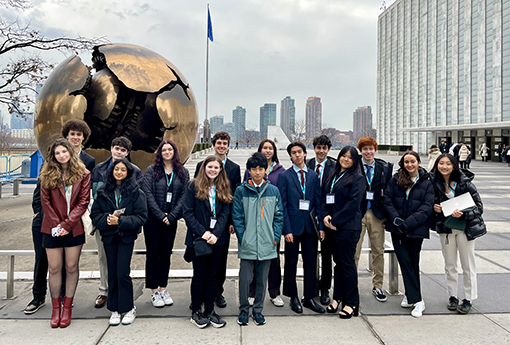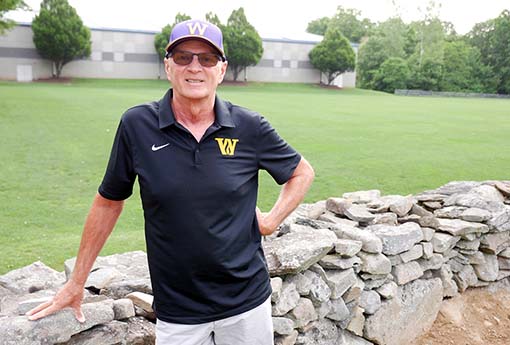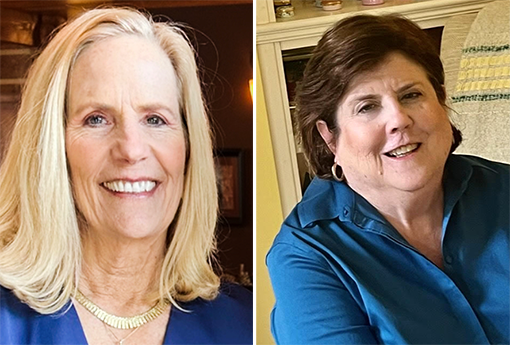
Learning from Alumni–and the Nation’s Leaders–at the WSDLC
January 6, 2025

When Wheeler wasn’t able to attend the National Association of Independent Schools’ (NAIS’) most recent Student Diversity Leadership Conference (SDLC) because we weren’t selected in the participant lottery, Director of Equity, Community, and Belonging Princess Sirleaf Bomba P’16, P’18 came up with an ambitious alternative: she decided to create a student leadership conference for interested Wheeler Upper School students down in Washington, DC, where they could connect with some of the leaders, including Wheeler alumni, who are making a difference for our national and global communities.
“We did something similar in 2021 when NAIS decided to host a virtual conference due to pandemic restrictions, and we felt it would be more meaningful to have an in-person experience” Ms. Bomba says. “Back then, we put together a program in Cambridge, MA that featured workshops led by faculty and staff from across divisions, as well as local alumni. The kids learned a lot, and they had fun, so when we were not selected to attend SDLC this year, I thought, why not do it again? And this time, given our focus on civic engagement and leadership development, what better place than in DC?”
The Wheeler Student Diversity Leadership Conference, which was held last month, was open to any interested 10th through 12th-graders at Wheeler, and Ms. Bomba was happy to be able to offer spots to all of the 14 students who applied.
She and the organizing team planned a full three-day agenda that kicked off with a keynote address from Wheeler alumnus Bart Johnsen-Harris ’08, who is now the director of federal climate change policy with Trust for Public Land. His remarks were followed by a alumni panel conversation with Micah Levanos ’21, who is currently a senior at American University, where he is working towards a dual degree in Public Health and Psychology; Grace Moorhead ’18, a science and strategy fellow with Oceana; and Providence City Councilman (and Wheeler Lower School Teacher) John Goncalves ’09.
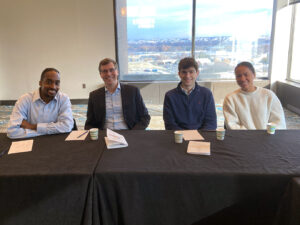
“I remember the alumni as students, and I just can’t put into words how special it was to learn from them now,” Ms. Bomba says. They all come from different backgrounds and perspectives, and to hear their journeys, and to see their growth and their commitment to their important work, was inspiring. Despite the polarization we’re seeing every day on the news, it gave me–and I know our students–so much hope for the future.”
The Wheeler students were also inspired by their sessions with lawmakers who, until that point, they’d only seen on their computer, phone, and television screens. They met with Senator Jack Reed and Representatives Gabe Amo and Seth Magaziner, and during a tour of the U.S. Capitol, they got to observe votes and speeches in the U.S. House of Representatives.
“One of the students said, ‘I never thought of them [the lawmakers] as regular people, and that makes me know that I can do this, too,” Ms. Bomba says. They also appreciated the diversity they saw on the House floor. As Ms. Bomba shares, “Another student said she wants to go into politics now because she saw that her voice matters.”
Everyone who attended the conference spent time digging into related topics in smaller “family groups.” As each group reflected on their issues and their experiences in our nation’s capital, one group noted that after learning about the process of government in school, being able to meet politicians in real life helped them better understand how the process–and ultimately change–happens.
The students also got to witness another aspect of that process when they went to the Supreme Court and saw competing protests outside. The demonstrators were voicing their various viewpoints on one of the cases before the court that day. “It was different being there in person versus seeing it on screen,” one of the family groups noted, while another said it was a bit overwhelming, but cool to see democracy in action.
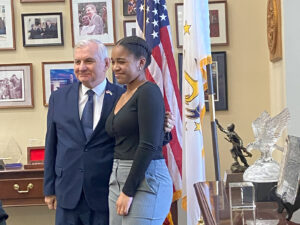
While the Wheeler students, faculty, and staff were engaged in real-time events both in and outside of government buildings, they also immersed themselves in meaningful but often difficult history during a pair of visits to the National Museum of African American History and Culture (NMAAHC) and the United States Holocaust Memorial Museum (USHMM). “I wouldn’t do this conference without having those two places as part of the program,” Ms. Bomba says. “You have to know so we don’t let it happen again. We can’t close our eyes to empathy, and we need to know what it means to be a bystander versus an upstander. You can’t afford to just think of what matters to you, personally or financially. I wanted the kids to know that that responsibility is tied to each of us as humans. I wanted them to see it, feel it, experience it. I also wanted them to know that they’re not they’re not powerless when it comes to standing up for themselves and for one another.”
“The NMAAHC gave humanity to places and people who are often not humanized,” one of the student family groups reflected. “I have grown over the years learning about history and Black history, but having this experience gave me a more meaningful and personal connection; It was hard to see, I cried, but it was also powerful to have institutions that show us this information.”
“I learned a lot that will stay with me forever,” another group wrote about their time at the USHMM. “It built my awareness and understanding and had a deep effect on me. I didn’t know as much as I thought I did, and it is scary how one person can bring about the horror and death of so many people; The personal stories of the individuals gave humanity to numbers, which is something I also felt at the NMAAHC.”
Despite the hard history lessons, the students recognized the importance of learning from history if those who are creating it today are going to do better going forward. “We have a school mission statement that says to know your powers and be answerable for their use, and through the conference, our kids were able to experience how lawmakers and other civic leaders are using their powers on behalf of their country. I wanted all of them to know that Washington DC, and the White House more specifically, is not just the home of one person–it’s their house too because it belongs to all of us.”
As one student shared, “I’m leaving [the conference] more empowered, both in my identity and in my motivation to push forward for things I care about.”
“Not only did I get a chance to bond with classmates and faculty members, but I also learned so much about the American political system and how I can be a leader in my own community,” added Sabrina G. ’26. “I appreciated the chance to speak with Sen. Reed and Rep. Amo and Magaziner. Hearing about the work they do in Congress and in our state made me hopeful about the upcoming years. I want to thank all of the Wheeler faculty members who made this trip happen. This was definitely a highlight of my year!”
